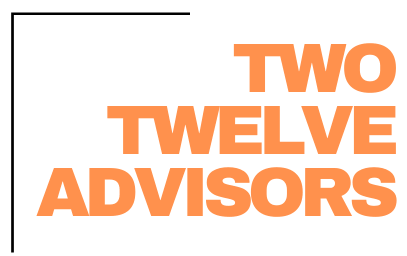“Paralysis by Analysis,” you’ve likely heard this term before. This term describes the inefficiency we create for ourselves when we get stuck on something, a problem, idea, etc. And rather than moving on, we have let it become the focus, stopping us from moving forward. Owners or business executives are especially susceptible to this. But this can be a problem in any role, throughout your company. On the other hand, sometimes we let ourselves become too familiar with the basics. Let’s look at some examples and review some tools you might provide to all your employees.
“The Blinders”
Even the hardest working employees can fall into this habit. This is when the employee becomes focused on the core of their job but doesn’t notice the things outside of the basic tasks, for which they are still responsible! For example, frontline staff often get caught in the rhythm of mow, trim, blow… and leave. They do this well! But they are so dialed into those three tasks they miss the weeds growing in obvious areas. Another example might be when the frontline team is on site, they should take the step of engaging with clients, if they’re there. Again, this might not be an explicit task they are given, but it is still part of their job! Managers are susceptible to this too.
As for a solution, there is no easy fix. We suggest surfacing this topic regularly. This might look like engaging the team during every frontline huddle, asking them to list all their responsibilities. Then poke for the not-so-obvious responsibilities. Remind them of your purpose: which is likely somehow related to providing excellent landscape results for your clients. If you are noticing a pattern on site, like the weed example, bring it up. No matter the situation, continue to remind your team to take the blinders off, remember your company’s purpose, and remember they are responsible for a little more than the basics.
Unorganized Staff Meetings
Staff meeting. You either love them or you don’t! Either way, we all know they are necessary at some level. No one likes an unproductive meeting when you could have been working on more important items. To help with this, you have to help train your team on meeting preparation and prioritization. This means coming with all the information needed and being disciplined to know when a topic comes up that can wait or needs to be hashed through in the meeting. Efficiency is key for both management and frontline meetings. Coming prepared allows the conversation to be clear for all parties and help ensure the meeting doesn’t run long.
If you have weekly management meetings to work through internal or client related issues, you might create some guidelines. For example, all managers should come prepared with a list of items they’d like to cover. Within that list they should identify, prior to the meeting, which ones must be covered. This looks like high priority client complaints, or uprooting items the team is holding you back on. This can be uncomfortable! [Click here to read more about accountability.]
Unnecessary Protocols
Are you or your team getting stuck because there are too many processes? We are promoters of process; it allows the company to flow smoothly. However, there are some things that don’t need a process. For example, some companies require every purchase to have a purchase order request, prior to the purchase. This is a great standard to have. However, you might need to consider being more flexible with certain roles. Mechanics for example can often get stuck by this process. You might adjust it so that the mechanic doesn’t need to request a P.O. if the total will be under $300. This gives them the space they need to do their job on a daily basis, while still ensuring the expensive purchases get ran past their manager. Otherwise, a mower part gets held up waiting for approval, and the frontline team feels the pain the next day, ultimately effecting the client’s property.
A phrase we use to leverage this problem is “Keep it simple.” We know the importance of process, but also try to keep it as simple as possible. The simpler your processes, the quicker your team can achieve results and the better your company will do!
Must Do’s Must Get Done
Similar to being prepared for meeting and identifying the priorities, every role should have Must Do’s identified. These are items that the role cannot leave for the day, or week without completing. For an Operations Manager this might be setting the next weeks frontline schedule before leaving on a Friday and approving time entry first thing every morning for prior day. For an Office Manager, this might be entering receipts weekly. By identifying these high priority items for your employees, you are helping them find success. If they become paralyzed by a task, they can always reflect back to know the Must Do’s have to get done, so they might need to pause on the task and come back later.
These are all topics we love discussing with clients. The conversation itself can be easy for a company or management to have – but actually implementing a new process can be difficult. That’s when you find pushback from individuals. When you bring an outside source in to help identify areas for improvement, we can provide the touch of pressure needed to see action.
FREE DOWNLOAD:
Future-Proof Your Landscaping Business in 6 Easy Steps
Thrive Leads Shortcode could not be rendered, please check it in Thrive Leads Section!
